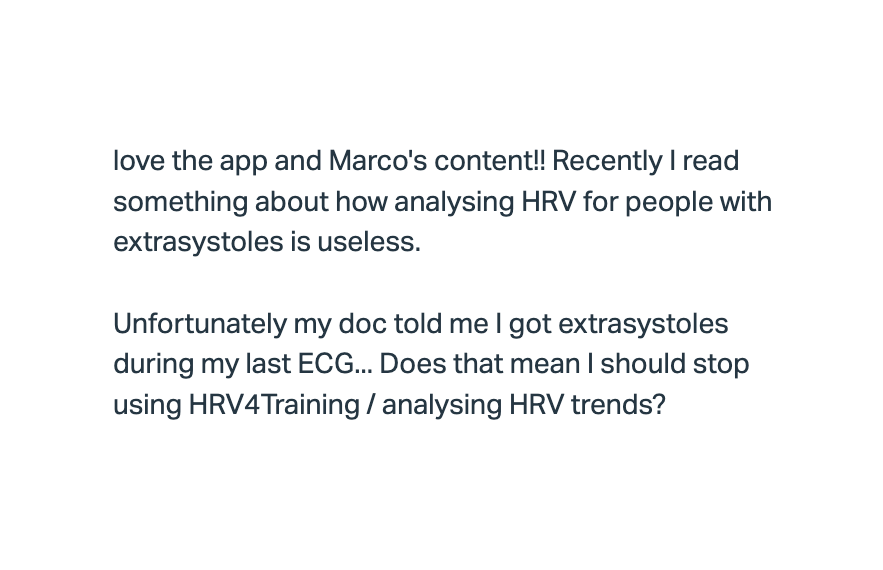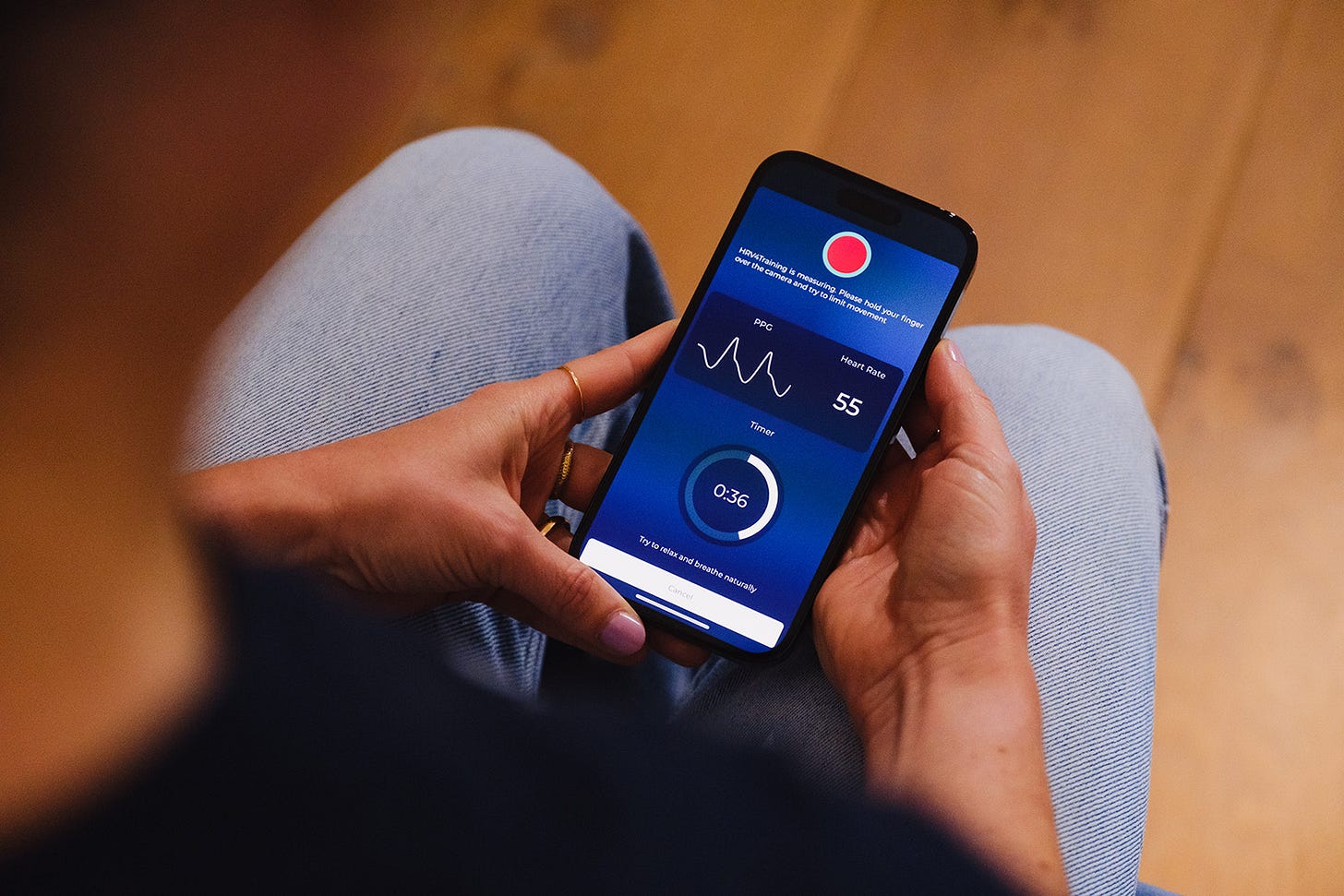I have received the question above and figured I’d address it here as this is quite a common concern among people tracking HRV, maybe even more so for endurance athletes who seem to be at higher risk of arrhythmia. Can we still use HRV?
Eventually, it all comes down to the frequency of the arrhythmia.
I myself also experience ectopic beats, but I can measure my HRV, as the ectopic beats are not very frequent. Basically, if you get them once in a while, it is typically not a problem (more info below).
If you get ectopic beats every minute, it is important to try to take a measurement while you do not get them (you can probably feel them, or if you cannot feel them, you can probably see them in the data, as it would look a bit different when a beat is anticipated or delayed, for example in the PPG waveform you can see two peaks very close).
The HRV4Training app has a good artifact removal system (in fact, in a recent validation we performed better than other tools even when linked to the exact same chest strap, see here), and we can easily remove one or two extra beats from a 1-minute recording. Hence even if something happens, normally it is removed so that the HRV number is not impacted and you don't have to worry about it.
A good heuristic here is to look at the HRV number, if it is very high above your normal range, then it can be a good idea to re-measure, as artifacts can only lead to abnormally high HRV. It is not possible for an artifact to lead to a low HRV, as it creates a disruption in the otherwise quite regular beat-to-beat timeseries, which is mostly modulated by breathing.
If you do experience many ectopic beats per minute, then it might simply not be possible to remove all the artifacts and measure your HRV. In these cases, heart rate is typically still reliable, and I would use heart rate as a stress marker as opposed to HRV.
In all cases, I would recommend a morning measurement as with this protocol you are in control, you can feel if you have ectopic beats, you can see the data, etc. - while with night measurements, you will just get "a great HRV", which is mostly artifacted (the same happened to me, with wearables data providing very high HRV while in the morning it was quite suppressed, see the data here). I suspect most people having very high night HRV, simply have an arrhythmia.
Keep in mind that 40-75% of the population has premature ventricular contractions when monitored for 24-48 hours with a Holter monitor (reference here).
It's pretty common.
Marco holds a PhD cum laude in applied machine learning, a M.Sc. cum laude in computer science engineering, and a M.Sc. cum laude in human movement sciences and high-performance coaching.
He has published more than 50 papers and patents at the intersection between physiology, health, technology, and human performance.
He is co-founder of HRV4Training, advisor at Oura, guest lecturer at VU Amsterdam, and editor for IEEE Pervasive Computing Magazine. He loves running.
Social:







how does a demand pacemaker effect measuring hrv if it is not firing